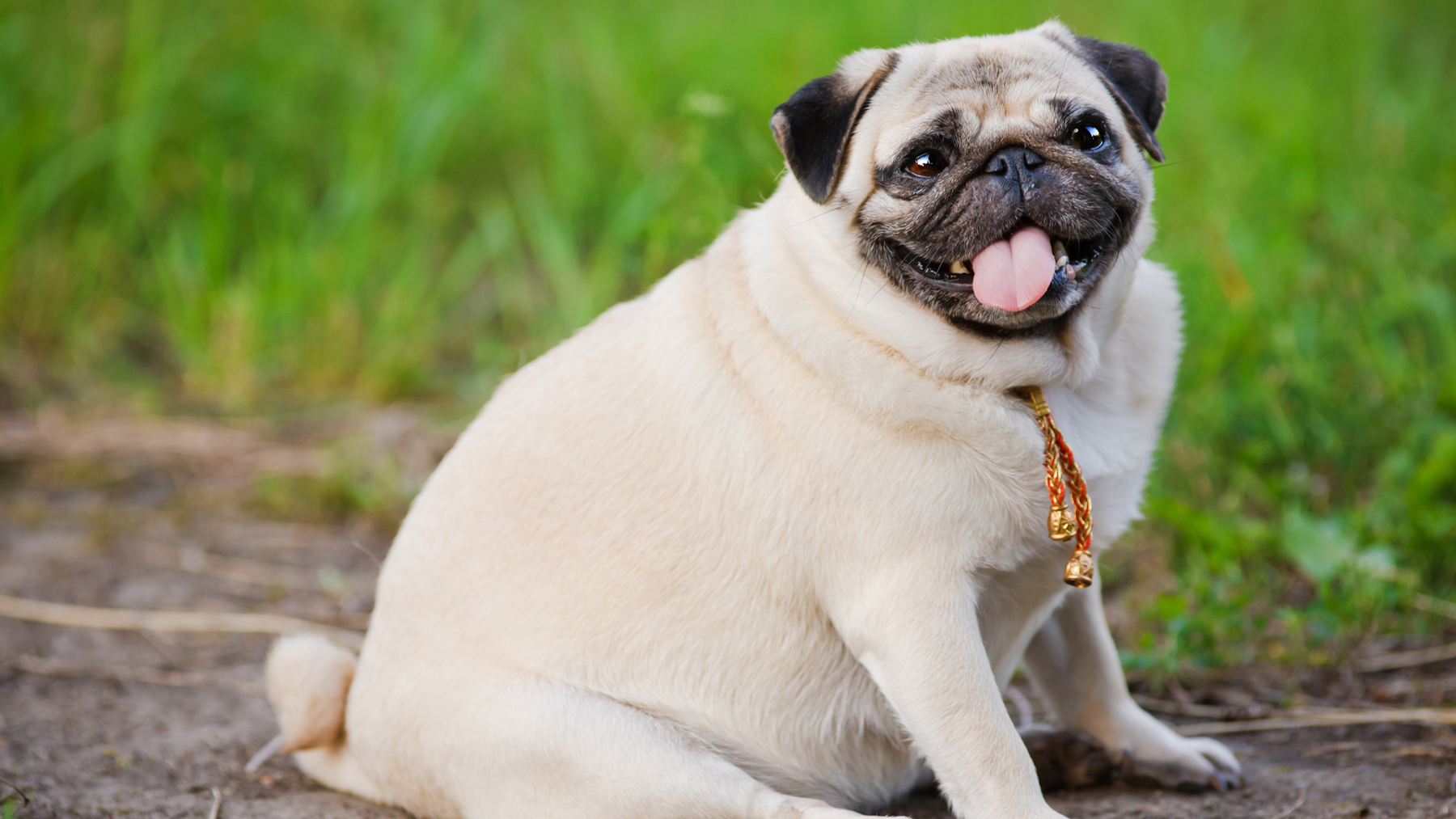Dog nutritionist shares five reasons why your dog struggles to lose weight
If your trying to help your dog shed some pounds, here's where you might be going wrong according to a dog nutritionist

You might have become used to seeing your dog with some extra weight on them. Although this may look cozier for Winter, you don't want this excess fat to stick around for long as it can have serious long-term consequences on your canine's health.
Perhaps you've been trying the best dog food while making cuts to how many of the best dog treats they get, but not seeing much difference. Not to worry, a dog's diet can be just as, and sometimes more complex, than human dietary needs.
This is where The Dog Nutritionist may be able to come in and help your dog slim down and get healthier for the New Year. Through sharing helpful doggy dietary tips online to empower dog owners, The Dog Nutritionist has racked up over 60,000 followers on Instagram where he shares specialized knowledge in natural healing through food.
According to him, 70% of dogs are overweight, so your pooch isn't the only one packing on the pounds. Thankfully, if you have a rather chunky canine on your hands and need some manageable, inexpensive tips to improve your pooch's health, The Dog Nutritionist has shared five ways to help your dog lose weight.
Watch The Dog Nutritionist share five reasons why your dog isn't losing weight
A post shared by The Dog Nutritionist (@the_dog_nutritionist)
A photo posted by on
Here's what The Dog Nutritionist had to say in his video:
1) Poor ingredients: The first point he raises is that you could be including too many carbohydrates or low-quality fats in the dry or wet tinned processed food that you are feeding your dog. Are you checking the food labels on the food you buy for your dog, check out our guide to the best wet dog food where you can read up on the ingredients and quality of each product.
2) Feeding habits: The dog nutritionist doesn't recommend feeding your dog breakfast and dinner as opposed to breakfast and lunch or lunch and dinner. "Treating our dogs so unlike the animals that they are, canines that have evolved to eat a lot in a short time, and then to not eat for a while, it’s hugely detrimental," he said.
Get the best advice, tips and top tech for your beloved Pets
3) Too many calories: If your dog is not burning off the calories that they're consuming on a daily basis then they are going to gain weight. The Dog Nutritionist says to reduce the quantity of food you're feeding your dog if this is the case.
4) Deeper underlying health condition: "If it’s the case that you’ve dramatically decreased the size of the meals and you have moved to a fresh food, well-balanced diet and they’re not losing weight, they might have an issue with their thyroid,". In which case The Dog Nutritionist says to consult your veterinarian.
5) Exercise: "Finally, you’re going to need to exercise them a little more. You need the calories out to be higher than the calories in. More exercise will lead to weight loss."
If you have more canine questions such as why is my dog always hungry? Stick around and read up on this, plus more such as 11 Christmas hazards for pets.

Jessica holds a journalism degree from Cardiff University and has authored articles for renowned publications, including PetsRadar, Fit&Well, LiveScience, Runner's World, The Evening Express, and Tom's Guide. Throughout her career in journalism she has forged connections with experts in the field, like behaviorists, trainers, and vets. Through her writing, Jessica aims to empower pet owners with accurate information to enhance their furry companions' lives.
